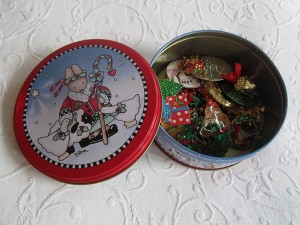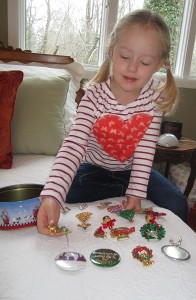Having young children among us is always a plus. No matter what the stresses of the day, just when we need a lift, they come out with something interesting.
For example, last week 4 year old Skylar and I walked across the road to take a break on our neighbor’s bench swing. (Thank you, Klints.) We were enjoying a conversation about whether or not the wet wood would dampen our clothes when she switched the subject. Pointing to a tall pine in our line of vision she said, “Wow, Grandma Midgee, look at that big tree!”
“Isn’t it pretty?” I said. “It’s still green in wintertime after all the other trees have lost their green leaves. It’s called an evergreen.”
When she didn’t respond I looked over. She was gazing up at the 50’ tree with a knitted brow, thinking deeply, and I knew something interesting was about to come out.
Finally she said, “Evergreen? What about ever-red or ever-purple? How ‘bout having some of those?”
Good question. Unless I wanted to go into the wonders of photosynthesis, I didn’t have a ready answer. So I just said, “That would be beautiful, Skylar. What a good idea!”
And that’s the thing about children. They’re always thinking, trying to understand the many mysteries in their world. As we adults grow older, we learn that there are scores of mysteries we’ll never understand. Maybe that’s why we subconsciously stop trying. When we get around children, though, their curiosity becomes contagious, and we begin again to wonder why things are the way they are.
To me the biggest mystery is why God continues to have any interest in us at all. Scripture makes it clear we were a tremendous disappointment to him when we chose sin over righteousness, and we continue to do it again and again, virtually daily. But for some reason unknown to us, he pursues us relentlessly, calling to us through circumstances, through the Bible, and through other people.
Why does he want us when we continually fall short of his ideal? The answer he gives when we ask is, “Because I love you.” That kind of love is a mystery to us, since we give or withhold love based mostly on performance.
In answer to that, he says, “Remember, I’m not you.”
So the only way to satisfactorily live with such a profound mystery is to simply accept that it’s true, and bask in that amazing love. One important thing to remember, though, is that doubting this divine love will only cause us trouble. Accepting it despite not understanding it is clearly the best choice.
The only other thing we might do is ask a child. It could be that Skylar has an idea about why God continues to love us. In the mean time, as I’m pondering this great mystery on my walks through the woods, I’m going to keep my eyes peeled for some ever-reds and ever-purples.
“Show us your unfailing love, O Lord.” (Psalm 85:7)






